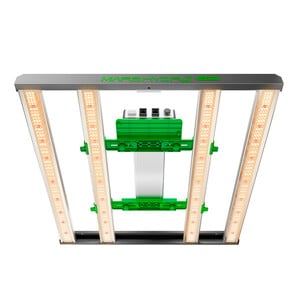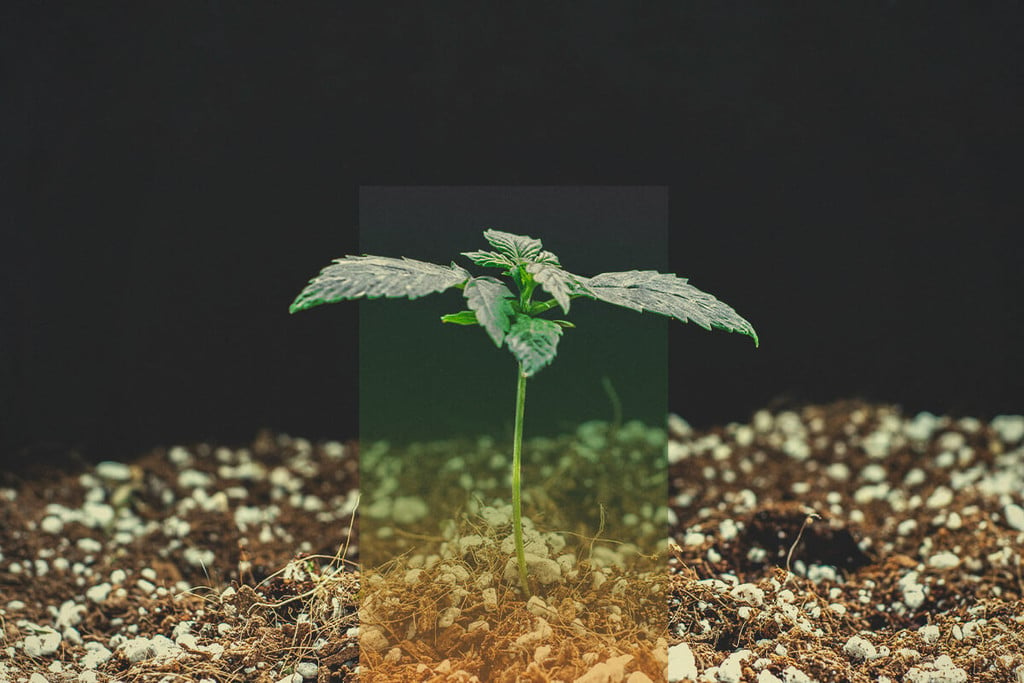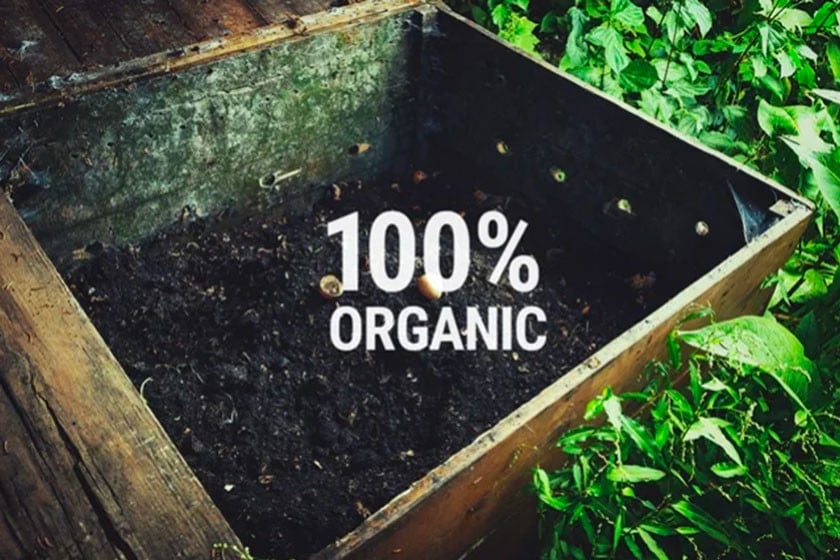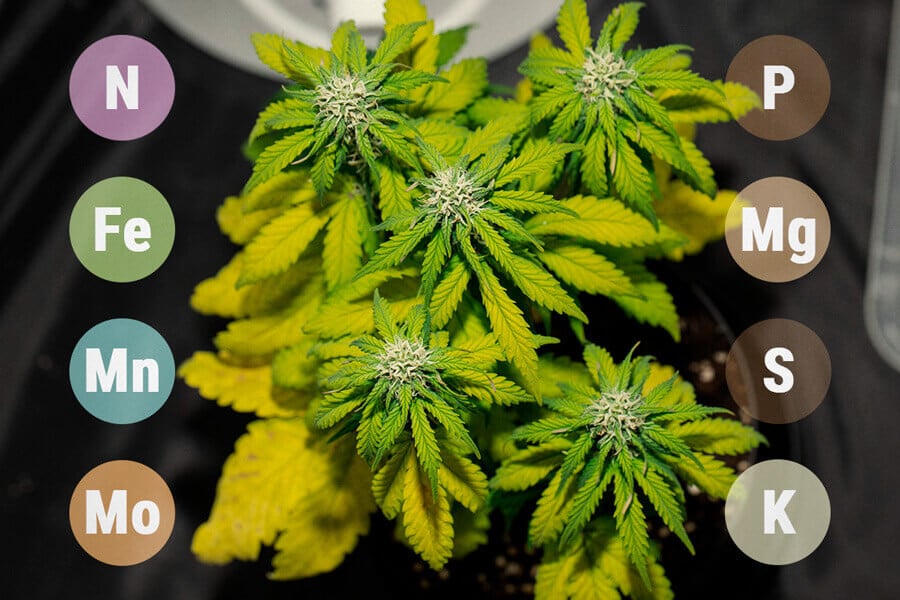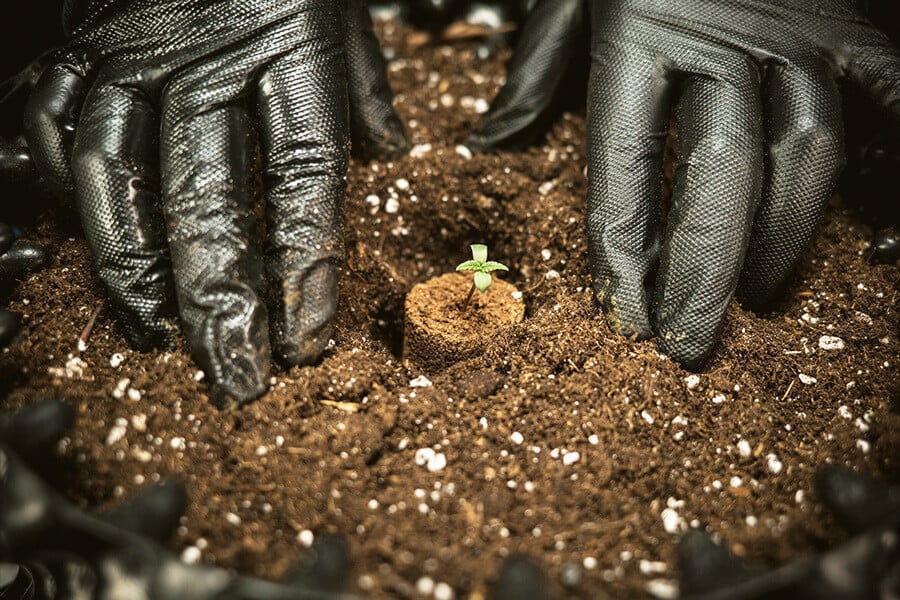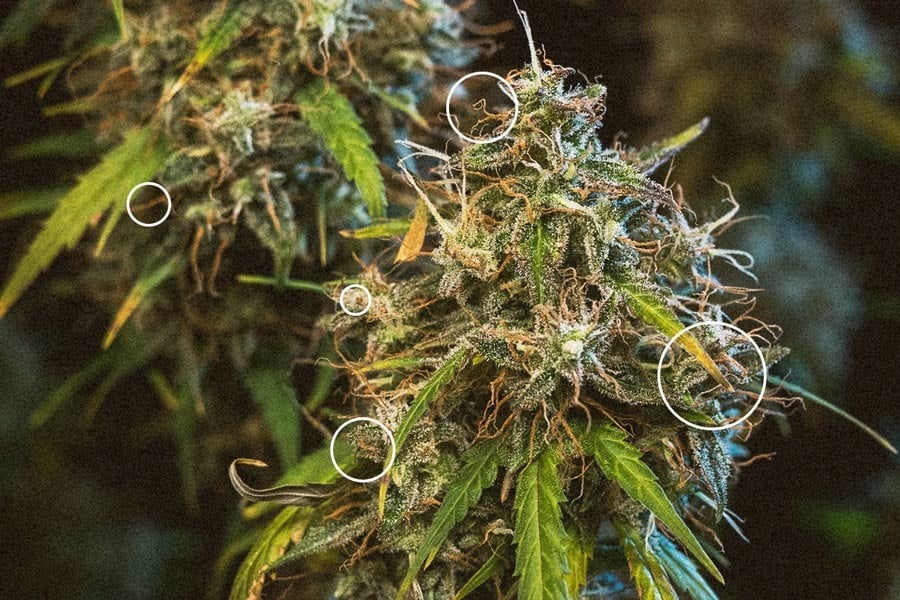.
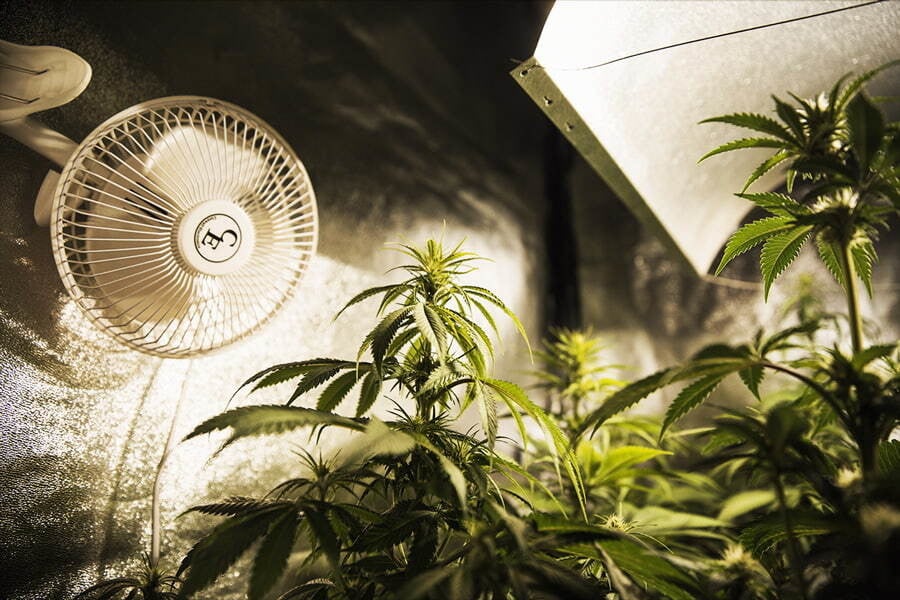
Cannabis Cultivation and Energy Consumption: Expert Strategies
Unlock the secrets of eco-friendly cannabis cultivation! Our comprehensive guide dives into energy-efficient lighting, climate control, and sustainable practices to make your grow both economical and ecological. Grow green, save energy, and reduce costs!
Cultivating cannabis indoors comes with a significant energy bill and a notable carbon footprint—neither of which are good things with the current state of affairs! This therefore presents a challenge for environmentally conscious growers and those looking to minimise costs.
This article explores effective ways to reduce energy consumption in your grow space, focusing on lighting, temperature, and humidity management, and then addresses the broader ecological impacts of cannabis cultivation. You can use the following knowledge and tips to make your indoor growing operation more sustainable and cost-effective.
Contents:
- The importance of energy efficiency when growing weed
- Lighting: the primary energy-consuming culprit
- How to tame temperature and humidity energy costs
- Beyond the grow room: addressing indirect energy consumption
- Top tips for growing more sustainable weed
- Make growing weed more economical and ecological
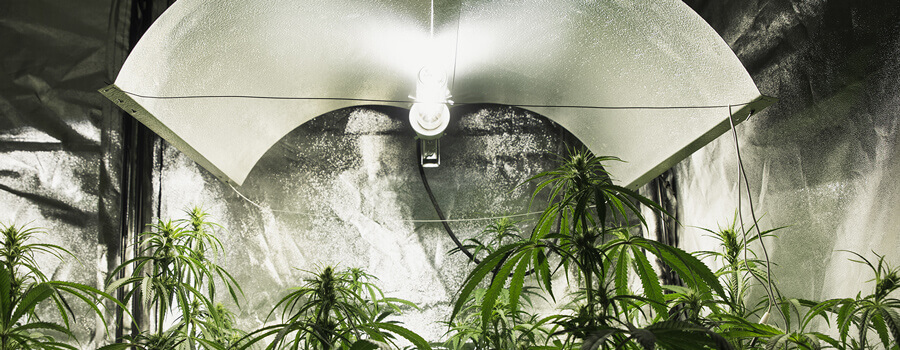
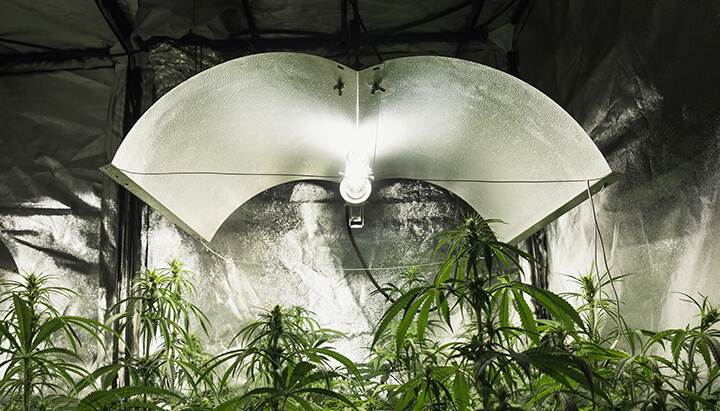
The Importance of Energy Efficiency When Growing Weed
Why should growers prioritise energy efficiency? The reasons are twofold, and probably quite obvious; first, to save money, and second, to reduce environmental impact. After all, why should getting high damage the planet for everyone else?
Cultivating cannabis, especially indoors, requires a considerable amount of energy, primarily due to lighting, temperature, and humidity control. However, by adopting more energy-efficient practices, it is possible to reduce your operating costs and lessen your ecological footprint.
Understanding the Energy Footprint of a Grow Room
Many enter cannabis cultivation with a passion for the plant and a desire to bring nature indoors (or just to get high). Yet, this endeavour has its costs. Research indicates that producing just one kilogram of processed cannabis indoors can generate as much as 4,000 kilograms of CO₂ emissions—equivalent to driving an average passenger vehicle over 11,000 miles (~18,000km).
These figures account for both direct and indirect emissions, with the largest producers being the most significant contributors. However, even small-scale home operations have a part to play in this environmental impact. Combine all the home growers together, and that’s a lot of carbon.
Identifying the Most Costly Sources of Energy Consumption
A breakdown of energy consumption reveals that lighting accounts for approximately 33% of emissions, followed by ventilation (27%), and air conditioning (19%). These components are the primary culprits behind the high energy use of cannabis cultivation, pointing to where we can make the greatest impact by implementing more efficient strategies.
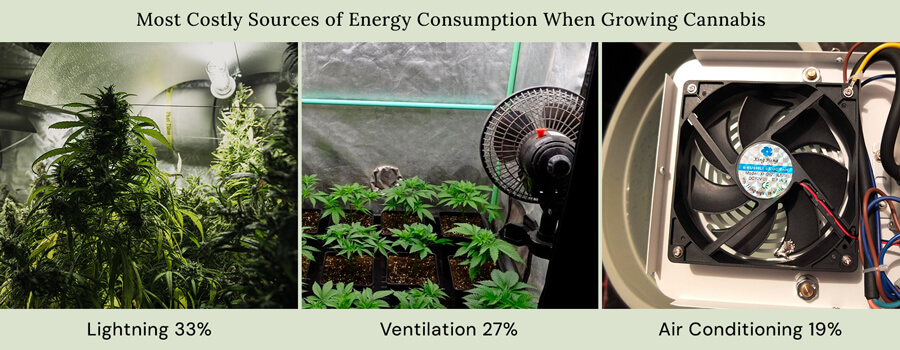
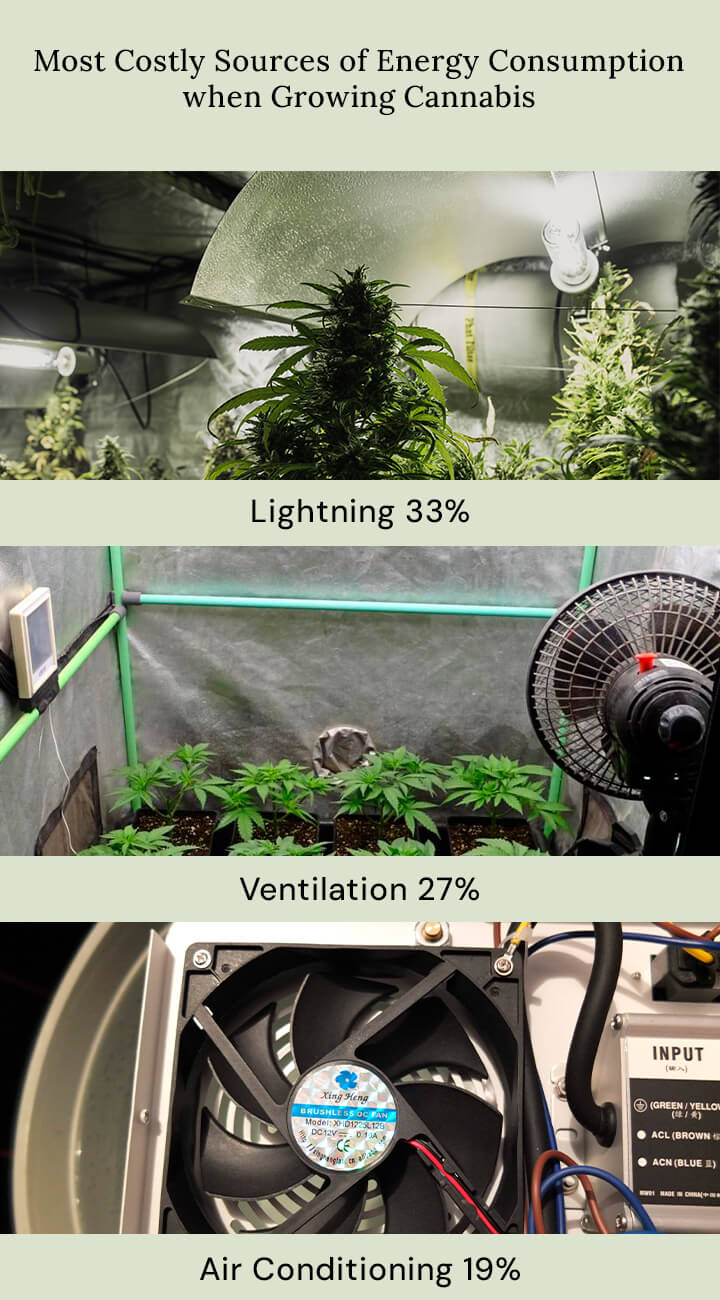
Lighting: The Primary Energy-Consuming Culprit
In the realm of indoor cannabis cultivation, lighting is the chief consumer of energy. This is a critical factor that demands careful consideration for anyone aiming to optimise their grow operation for efficiency, as lighting is so important for a good crop. The quest to balance energy consumption with effective plant growth means we must explore innovative solutions to help us be more sustainable without sacrificing yield quality.
Grow Light Cost Calculator
Seedling Stage
Calculator results
Vegetative Stage
Flowering Stage
Grow Light Cost Calculator
Seedling Stage
Calculator results
Vegetative Stage
Flowering Stage
Opt for LED Lighting
The shift towards LED (light-emitting diode) lighting technology is one of the simplest and most effective ways to transition to an effective yet energy-efficient cultivation practice. LEDs offer myriad benefits that extend beyond mere energy savings.
To start, they operate at significantly lower temperatures, reducing the need for extensive cooling systems and therefore further cutting down on energy expenditure. LEDs are also celebrated for their longevity, durability, and ability to emit light across a broad spectrum—mimicking the natural sunlight spectrum more closely than their competitors. This makes them not just an eco-friendly choice but a generally helpful tool for enhancing plant growth, providing cultivators with powerful yet energy-conserving lighting.
Mars Hydro FC3000 – 300 W LED Grow Light
|
|
660-665nm, 2800-3000K, 4800-5000K |
|
|
59.5x54x6.1 cm |
|
|
300W±5% |
|
|
2.85μmol/j |
|
|
855μmol/S |
|
|
Samsung LM301H EVO |
|
|
90x90 cm |
|
|
3.5g/watt |
Buy Mars Hydro FC3000 – 300 W LED Grow Light
To demonstrate, let's consider some real data:
- Heat Output and Energy Efficiency: A 600W HPS light emits heat equivalent to a 600W space heater, potentially harming plant growth if indoor temperatures aren't managed. LED grow lights are more energy-efficient, potentially saving 30-50% on energy bills compared to HPS lights.
- Energy Efficiency Metrics: HPS lights have an average efficiency of around 1.2 μmol/J (micromoles of light per joule of energy), while high-quality LED grow lights can achieve an efficiency of 2.0 μmol/J or higher.
- Lifespan and Replacement Costs: HPS and MH (Metal Halide) bulbs typically need replacement every 12 to 18 months, with HPS lamps lasting approximately 10,000 to 20,000 hours. In contrast, LED grow lights can last over 5 years, often exceeding 50,000 hours of use. This longevity reduces the frequency and cost of replacements for LED lights.
- Cost Comparison: HID lights have a lower upfront cost compared to LED lights. Basic HID setups typically range from $200 to $500, while basic LED setups start at around $300, with more advanced models costing several thousand dollars.
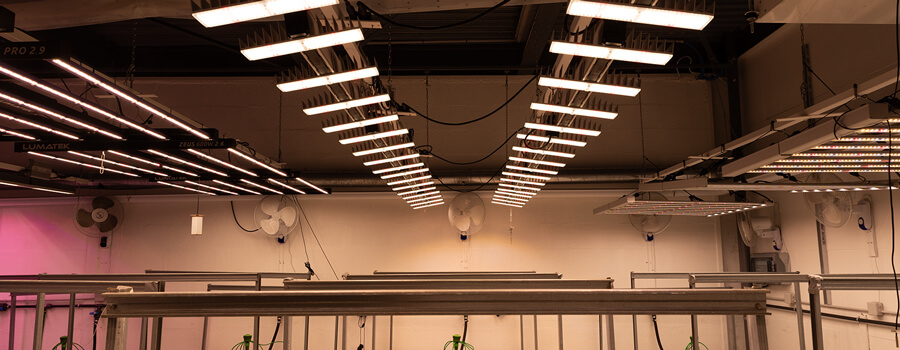
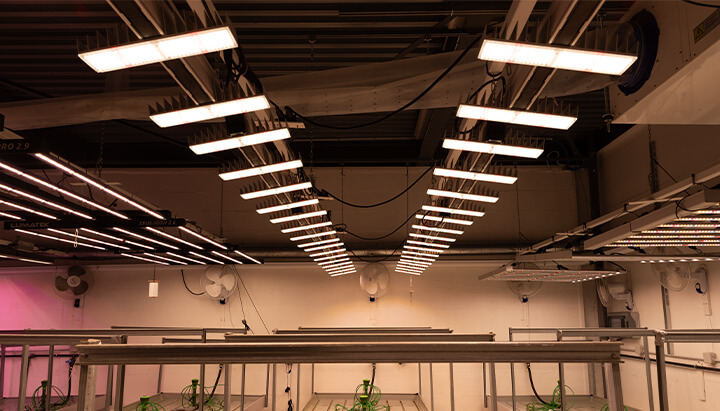
Determine Optimal LUX and PPFD for Your Growing Space
Understanding and adjusting the light intensity (LUX) and photosynthetic photon flux density (PPFD) for your specific grow space is paramount to preventing excess energy use. These metrics serve as a compass, guiding growers towards using just the right amount of light necessary for their plants' health and productivity, and no more.
By accurately dialling in these variables, you can ensure that the lighting system is neither under-performing nor overburdening the energy bill. It's about striking the perfect balance, where every photon counts towards growth and no watt is wasted.
Run Your Lights Less During Veg
The vegetative stage of the cannabis life cycle does not necessitate round-the-clock exposure to light. Scaling back to an 18-hour light cycle can significantly curtail energy use without hindering the plants' developmental progress. This adjustment not only aligns with the natural rhythm of plant growth but also opens up avenues for energy conservation. By adopting a more measured approach to lighting during the veg stage, growers can make a meaningful reduction in their operation's energy footprint.
Switch Photoperiods to Bloom Sooner
For those cultivating photoperiod strains, initiating the flowering stage earlier presents an additional opportunity to minimise the overall energy consumption of the grow operation.
While this strategy may yield smaller harvests, the trade-off in energy savings can be substantial. For many, this trade-off may not be worth it. But nevertheless, it’s worth bearing in mind.
Consider employing the SOG method: When plants reach a certain height (about 2 weeks old), switch them to the 12-12 bloom cycle. This encourages single-cola growth, reducing lateral branches to single buds. Some growers start with 12-12 from the beginning, yielding similar yields per square meter with many small plants in small pots instead, with less energy consumption throughout the whole cycle. Fast and efficient.
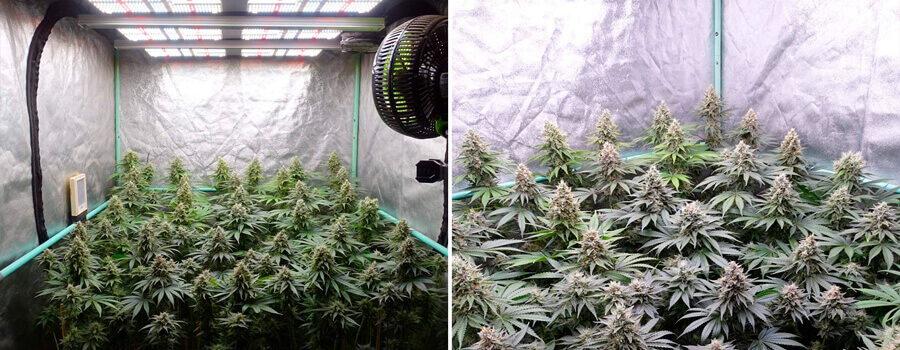
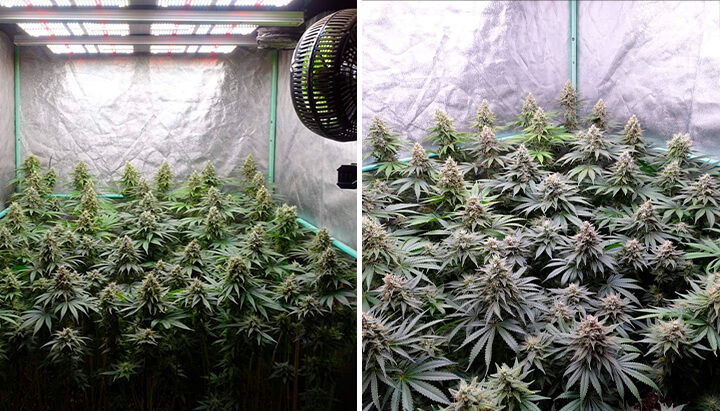
How to Tame Temperature and Humidity Energy Costs
Temperature and humidity play pivotal roles in cannabis cultivation, and come only behind lighting in terms of energy consumption. Effective management of these elements not only ensures the health and productivity of your cannabis plants but also significantly reduces the energy footprint of your grow operation.
In the following section, we’ll look at how to optimise temperature and humidity controls efficiently.
Embrace Passive Climate Control Strategies
The principle of passive climate control is simple yet profoundly impactful in managing temperature and humidity levels within a grow space, especially considering the energy costs associated with active heating and cooling systems.
In regions with cooler climates, positioning your grow tent near a south-facing window, within an upper-level room, can harness the natural warmth of sunlight, reducing the need for artificial heating. This deliberate placement, coupled with the use of existing central heating systems meant to comfort your living spaces, can keep temperatures within the optimal range for cannabis cultivation without additional energy expenditure.
Conversely, in warmer climates, selecting a north-facing room located on the lower levels of your home for your grow space can take advantage of naturally cooler conditions, therefore minimizing your reliance on air conditioning systems. This approach not only conserves energy but also helps to keep your plants naturally cool.
Implement Automated Climate Control Systems
Advancements in technology have brought sophisticated solutions not just to the home but to cannabis cultivation: automated climate control systems .By integrating fans, humidifiers, heaters, and air conditioners into a cohesive system controlled by sensors and a centralised controller, cultivators can achieve precise environmental conditions tailored to the specific needs of their cannabis plants.
These smart systems operate on the principle of need-based activation, ensuring that equipment runs only when necessary, significantly reducing overall energy consumption as a result. Once a room is hot enough, the system switches off immediately, for instance. The accuracy and efficiency of automated climate control not only conserves energy but also eliminates the guesswork of maintaining optimal growth conditions, making it an indispensable tool for the modern cultivator. It even means you can pay less attention to a grow, making it less time-consuming too. You can save the world and be lazy!
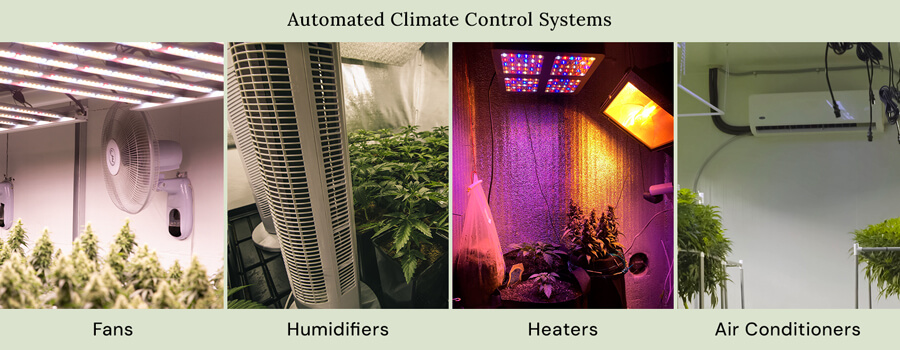
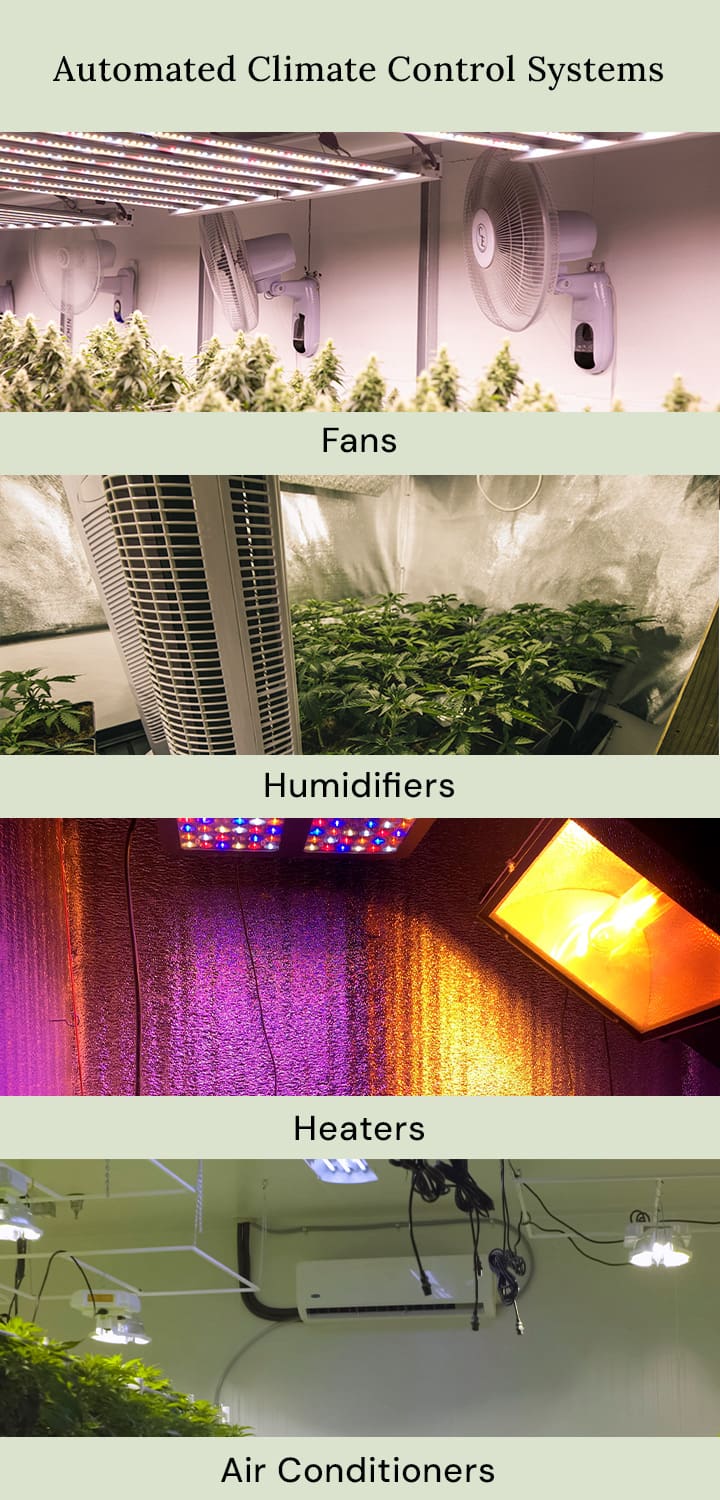
Solar Panels: Harness the Power of the Sun
In the quest for sustainable and energy-efficient cannabis cultivation, solar panels emerge as a viable solution to offset the energy demands of temperature and humidity control systems. If you’re not growing your plants under the sun, why not still find a way to use the sun to power them?
By converting sunlight into electricity, solar panels can supply clean, renewable energy to power the entirety of a grow room's operational needs or significantly supplement its energy consumption. There may also be significant excess energy that could be used to help power the rest of your home.
Beyond the Grow Room: Addressing Indirect Energy Consumption
While direct energy consumption within the grow room is often the main focus, it's important to recognise the broader ecological impact and energy use associated with cannabis cultivation. Addressing indirect causes of energy consumption presents an opportunity for cultivators to reduce their environmental impact still further.
Composting and Recycling
The life cycle of cannabis cultivation involves various inputs, from bagged compost to growing media, all of which are typically reliant on fossil fuels for their production and transportation. By composting organic waste and recycling growing equipment, cultivators can significantly diminish the indirect energy consumption and carbon footprint of their operations. This practice not only contributes to a reduction in waste but also incorporates a circular economy into the cultivation process.
Harvesting Rainwater
Cannabis plants need water. Who knew? And this is another area in which energy consumption can be indirectly influenced. The treatment and distribution of tap water are energy-intensive processes, with significant carbon emissions associated with each cubic metre of water supplied.
Collecting rainwater presents a sustainable alternative, reducing reliance on water systems and their associated energy use. This approach encourages the efficient use of natural resources, and saves you money!
Organic Fertiliser: A Sustainable Nutrient Solution
The transition towards organic fertilisers, such as those produced through Korean natural farming (KNF) and JADAM organic methods, represents a shift to more sustainable and energy-efficient cultivation practices.
These techniques emphasise the use of locally sourced, natural inputs to create effective fertilisers that nourish cannabis plants without the high energy costs associated with synthetic nutrient production. Adopting organic fertilisation methods reduces the energy footprint of cannabis cultivation and also benefits plants, improving growth and reducing the likelihood of issues such as over-feeding.
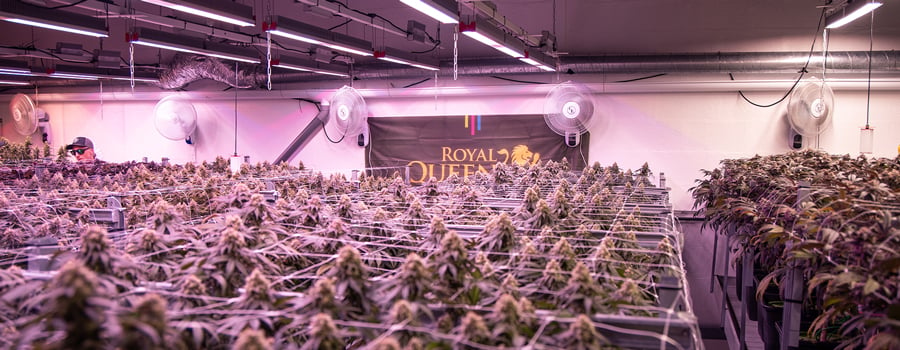
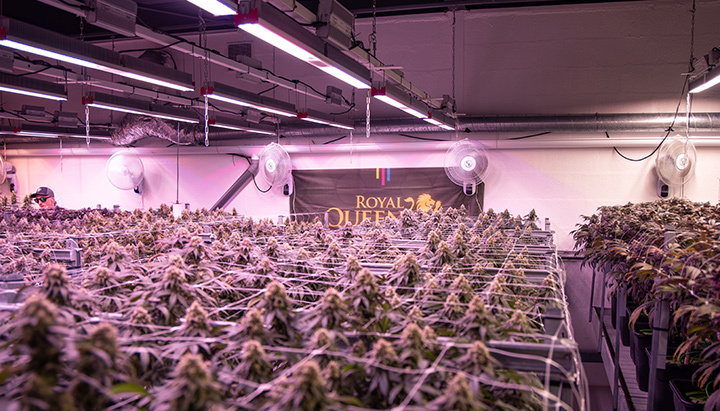
Top Tips for Growing More Sustainable Weed
For growers who want a quick rundown of how to grow more ecologically, here are some key tips:
- Understand the energy footprint of your grow room and know which pieces of kit use the most power
- Use LED lighting, as it is the most energy-efficient form of artificial grow lighting available
- Use an 18/6 schedule during the vegetative stage
- Flip to flowering sooner
- Use passive climate control techniques
- Use automated systems to make your grow more efficient
- Use organic fertiliser and, if possible, make it yourself!
Make Growing Weed More Economical and Ecological
It is evident that both the direct and indirect energy demands of cannabis cultivation are significant. From the intense energy consumption of lighting systems to the less obvious but equally impactful requirements for water, nutrients, and climate control, every aspect of indoor (and outdoor) growing contributes to the overall energy footprint of cannabis production.
However, equipped with the insights and techniques outlined in this guide, cultivators are now better able to pursue a more eco-friendly and cost-effective path. By embracing LED lighting, optimising environmental controls, leveraging renewable energy sources, and adopting sustainable cultivation practices, growers can significantly reduce the direct energy consumption within their grow rooms. Furthermore, by considering the broader ecological impact of their operations—through measures such as composting, recycling, harvesting rainwater, and utilising organic fertilisers—cultivators can address the indirect energy demands of their cultivation practices.



























